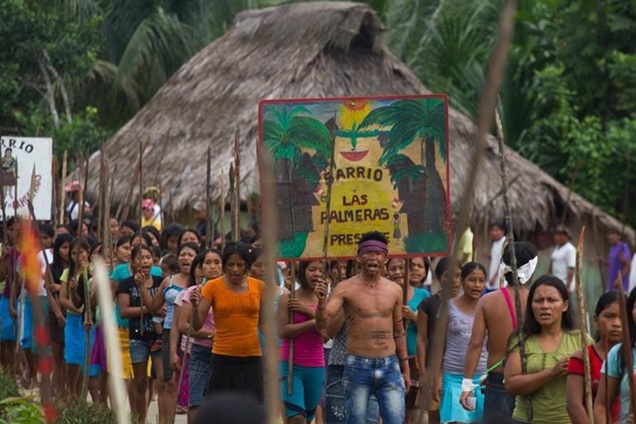When economics and industrialisation meet traditional lifestyles and communities it never usually ends well. Whilst governments and large corporations may argue the case for progress, the opportunity to exploit and make money is never far from their minds. This age-old story has played out in the Western world since the Industrial Revolution, but, unbeknownst to many, it’s still happening at pace in the Developing and Third World.
In Heidi Brandenburg and Mathew Orzel’s documentary When Two Worlds Collide the spotlight is on Peru. Whilst the government, led by President Garcia, continues its programme of deforestation in the Amazon by selling-off land to nationals and multi-nationals, the native peoples have had enough. Spearheaded by Indigenous leader Alberto Pizango, they decide to take action and demand that the new laws be repealed in order to safeguard their future.
When Two Worlds Collide is a fascinating portrait of a country torn between tradition and economic development. Brandenburg and Orzel do a great job of getting inside the story and illustrating the opposing positions. Though the use of (often shocking) footage, interviews and reportage as events unravel, they paint the picture of a indigenous population under siege. When Two Worlds Collide is shocking and thought-provoking documentary film-making; casting light on an almost silent destruction in the name of capital gain.
When Two Worlds Collide is out in cinemas from tomorrow.














No Comment